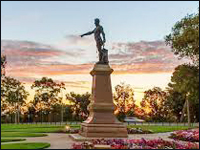 On 1 July 2014, my first day as a Senator, Adelaide’s Advertiser newspaper published an opinion piece I had submitted titled, Shedding the ‘Bludger State’ tag, in which I implored the SA State Government to stop bludging on the other states and start standing on its own two feet.
On 1 July 2014, my first day as a Senator, Adelaide’s Advertiser newspaper published an opinion piece I had submitted titled, Shedding the ‘Bludger State’ tag, in which I implored the SA State Government to stop bludging on the other states and start standing on its own two feet.
Then Premier Jay Weatherill responded by calling me ‘an enemy of the state’.
Many South Australians can probably remember the time when more than a dozen of Australia’s top 100 listed companies had their head offices in Adelaide – News Ltd, Fauldings, Southcorp, Elders, Normandy Mining, Adelaide Bank, Adelaide Brighton, Standard Chartered Finance to name just a few. Today there’s just one – Santos (and even Santos is only headquartered in Adelaide because of some vague arrangement).
At the time of Federation, South Australia led the constitutional debates and had an influential hand in shaping the new Commonwealth of Australia. For decades after, Adelaide was Australia’s Number 3 city – bigger and more prosperous than either Brisbane or Perth.
Led by Tom Playford, South Australia prospered under the principle of ‘cheap land, cheap power, cheap water, and cheap labour’. Wages were lower than in Sydney and Melbourne, but despite the lower pay packets, South Australians’ quality of life and standard of living were higher than their interstate counterparts.
It was an example of genuine competitive federalism – not the pseudo competitive federalism of today in which state governments try to outdo each other enticing companies to set up in their states.
Since those halcyon days, South Australia has lost each of the competitive edges that made it prosperous.
First to go was cheap land – thanks to urban planning controls – then water, then centralised wage fixing (waiters, nurses, and factory workers across Australia all had to get the same pay).
As for power prices, they are now not just the highest in Australia, but some of the highest in the world.
Last year, the South Australian premier folded like pack of cards over nuclear power. The idea that he and his Labor colleagues would take on the urban planners, water barons and unions to make SA competitive again is laughable.
SA is destined to be a mendicant State for a long time to come.
Former Prime Minister Bob Hawke once said, “We’re all Australians, whether we’re from Melbourne or Sydney”.
Where those from the ‘outlying States’ (as Paul Keating called them) belonged, was anyone’s guess.
When Australia came together as a nation in 1901, Sir Samuel Griffith, nailed it by saying:
“We must not lose sight of the essential condition that this is to be a federation of states and not a single government of Australia. The separate states are to continue as autonomous bodies, surrendering only so much of their power as is necessary for the establishment of a general government to do for them collectively what they cannot do individually for themselves.”
Those who spend the money should raise the money
The powers given to the Federal Government by the states in 1901 included trade and commerce, corporations, currency, banking, pensions, taxation, foreign affairs, communications, copyright, marriage and family law, quarantine, and defence.
There was no mention of hospitals, schools, disability services, pink batts, carbon dioxide emissions or many of the other things that federal governments these days decide they want to spend our money on.
Not surprisingly, the first area where the boundaries between state and Federal governments were tested related to tax.
In 1942, all income taxing power was handed to the Federal government for the duration of World War II under the ‘defence’ power of the Constitution. This was intended to be temporary and was to last until the end of the war. But as predictable as the sunrise, when the war ended the Feds did not relinquish their income tax collector role (not that the states wanted to resume income tax collection, but that is not the point).
Since then, the tax revenue balance has continued to move away from the states and towards the Feds. The imbalance which now exists is known as ‘vertical fiscal imbalance’.
Australia has the highest level of vertical fiscal imbalance of any federal country in the world. The Federal government raises over 70% of all government revenues – much more than is required to fund its own operations – while the states don’t raise anywhere near enough to fund theirs. The Feds then make up the states’ shortfall through Commonwealth grants.
This creates a perpetual blame game. Failures at the state level are blamed on the Feds’ lack of funding, and failures at the federal level are blamed on the states’ poor service delivery.
Duplication of health and education bureaucracies alone costs taxpayers billions of dollars, yet the Feds do not run a single hospital or a single school.
This cannot go on. State and Federal governments should only collect taxes for their own purposes, and taxpayers and consumers should be fully informed as to what is a state tax and what is a Federal tax. Those who spend the money should bear the responsibility of raising it.
This confusing power structure between the states and the Federal government – and between individual states – was emphatically exposed during Covid with many calling for the abolition of state governments and the formation of one national government.
But as Covid revealed, the Federal government doesn’t have the power it thought it had. The Feds may have the money, but it’s the states that have the power.
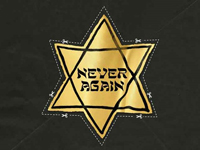 It’s been said that whatever is done to the Jews, is done for the Jews.
It’s been said that whatever is done to the Jews, is done for the Jews.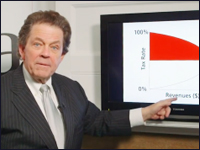 An Australian was on holidays in the south of France.
An Australian was on holidays in the south of France.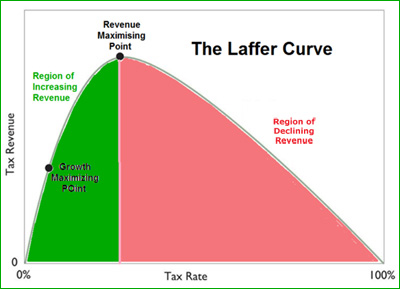
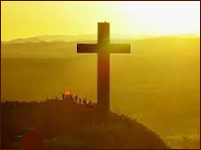 One hundred years ago this year, four young Indigenous evangelists first preached the gospel at Ikuntji (Haasts Bluff) 200 km west of Alice Springs.
One hundred years ago this year, four young Indigenous evangelists first preached the gospel at Ikuntji (Haasts Bluff) 200 km west of Alice Springs.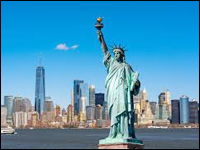 In 1946, Viktor Frankl, Holocaust survivor and renowned author of the book Man’s Search for Meaning, proposed that the Statue of Liberty on the east coast of America be complemented by a Statue of Responsibility on the country’s west coast. He was later joined in this endeavour by Stephen Covey, author of The 7 Habits of Highly Effective People. The dream was to ‘bookend’ the nation with two equally inspiring statues – one representing rights, the other responsibilities.
In 1946, Viktor Frankl, Holocaust survivor and renowned author of the book Man’s Search for Meaning, proposed that the Statue of Liberty on the east coast of America be complemented by a Statue of Responsibility on the country’s west coast. He was later joined in this endeavour by Stephen Covey, author of The 7 Habits of Highly Effective People. The dream was to ‘bookend’ the nation with two equally inspiring statues – one representing rights, the other responsibilities. It’s been said that any place you can’t leave is a prison. Australia’s present workplace regulation system is a prison, trapping a person in thousands of pages of regulations. When I ask why we lock people up like this, I am told “Oh it’s for their own good – we don’t want them to be exploited.”
It’s been said that any place you can’t leave is a prison. Australia’s present workplace regulation system is a prison, trapping a person in thousands of pages of regulations. When I ask why we lock people up like this, I am told “Oh it’s for their own good – we don’t want them to be exploited.” On the 14th of August, Prime Minister Anthony Albanese was interviewed by Neil Mitchell on Melbourne’s 3AW. Part of the interview went like this:
On the 14th of August, Prime Minister Anthony Albanese was interviewed by Neil Mitchell on Melbourne’s 3AW. Part of the interview went like this:
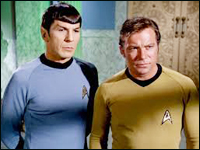 It is two years since we launched our
It is two years since we launched our 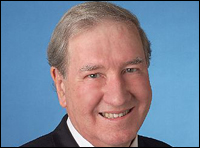 Andrew Evans was elected to the South Australian Parliament’s Upper House (Legislative Council) in February 2002 with a primary vote of 4.0%. Not bad for a first-time candidate and a new party.
Andrew Evans was elected to the South Australian Parliament’s Upper House (Legislative Council) in February 2002 with a primary vote of 4.0%. Not bad for a first-time candidate and a new party.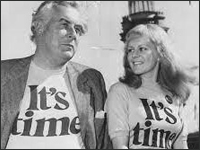 In 1911, French physician and psychologist Édouard Claparède published his observations of a female amnesiac patient. The woman was suffering from a debilitating form of amnesia which left her incapable of forming new memories. She had suffered localized brain damage that preserved her basic mechanical and reasoning skills, along with most of her older memories, but beyond the duration of a few minutes, the recent past was lost to her.
In 1911, French physician and psychologist Édouard Claparède published his observations of a female amnesiac patient. The woman was suffering from a debilitating form of amnesia which left her incapable of forming new memories. She had suffered localized brain damage that preserved her basic mechanical and reasoning skills, along with most of her older memories, but beyond the duration of a few minutes, the recent past was lost to her.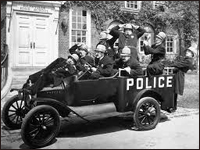 A local police force was chasing a criminal who had fled into a large disused building. Their first thought was to surround the building, but they then realized that the building was so large and had so many doors and windows, they didn’t have enough police on the scene to cover all the exits. So instead, they surrounded the building next door which was smaller and had fewer exits.
A local police force was chasing a criminal who had fled into a large disused building. Their first thought was to surround the building, but they then realized that the building was so large and had so many doors and windows, they didn’t have enough police on the scene to cover all the exits. So instead, they surrounded the building next door which was smaller and had fewer exits.